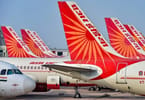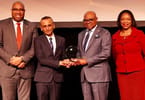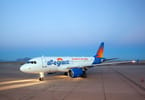The struggling economy in the US and around the world has taken a serious toll on the travel industry, as it has on most other businesses. In the last months, the travel industry has seen negative numbers. Experts somehow think the market is ready for the turn-around.
“Travel and tourism has been impacted, however, even further by negative rhetoric out of Washington about travel for meetings, events and performance incentives and due to feats or traveling created by the H1N1 virus or swine flu,” said Jonathan Tisch, chairman and CEO Loews Hotels, at the 31st Annual New York University International Hospitality Industry Investment Conference held in Manhattan last week.
“Since we have sent out the message, we don’t see the same stories, the vitriol coming out of the nation’s capital which was coming out on us, the industry. There are positive stories now about what the industry needs and can do. The opportunity presented before us today is to keep working together and to recover from the downturn and eventually create jobs, which the industry has been doing for years,” he said.
Newly-released data from the Department of Commerce shows that overseas arrivals to the US plummeted nearly eight percent in January. In 2008, 633,000 fewer foreign visitors came compared to year 2000, despite the fact that 48 million more international travelers took long-haul trips in 2008 that in 2000. “If US overseas arrivals would have kept pace with the international long-haul travel trends from 2001-2008, the US would have welcomed a cumulative total of 58 million more visitors, resulting in $182 billion in new spending and $27 billion in new tax revenue, and would have supported an additional 245,000 jobs each year,” said Tisch.
According to Stephen Joyce, president and CEO, Choice Hotels International, they are hopeful and have started to believe there are some signs of a slight correction with the possible 4th quarter 2009 rallying up and unemployment slowing down. Joyce said: “We forecast some growth sometime mid-year next year. But though we don’t see a lot of signs of full recovery, some people are starting to feel more confident about the world economy. Things, at some point, will get better.”
Choice Hotels is doing reasonably well in the present economic environment, Joyce added, due to consumer budget limitations. Of all chains, Choice Hotels has sustained operations and balance sheets well through the crisis.
“The worst of this is behind us. We’re quite optimistic. What characterized this decline is the financial system going out of control which created the global panic. The financial system around the world needs to repair itself first. The second quarter of the year sees the worst but there will be some improvement towards the Q3,” said Christopher Nassetta, president and CEO, Hilton Hotels Corporation, who added the market has a burning desire to never ever have to endure this again and to get stability into our financial system.
There should be a way to legislate and regulate stability. Nassetta said however, there are a lot of structural issues the high-end side of his hotel business, and of the industry, they would have to face.
“The panic part is largely global. The world has to deal with it, but I think we are on our way out of the dark soon,” said Nassetta. “There are some tell-tale signs of market turn-around. Soon however, we will see significant improvement over time, but it will be a slow, arduous process as the system needs a number of years to level out and sort out the excess. We will see some improvement as we get to the third and fourth quarter of the year,” he added.
Frits van Paasschen, president and CEO, Starwood Hotels and Resorts Worldwide believes there is pent-up demand created by the recession – and the rebound to come between ‘staycation’ and potential business meetings. “Over time, there will be a rebound. The US will not be the locomotive for the change the market requires. We will see a slower and more protracted recovery. The real promise here is seeing others like China grow by 6.1 percent, India 5.8 percent. The world growth rises in a multilateral way. There are real signs of life and economic growth and our economy will grow a bit.”
“What we need is the passage of the Travel Promotion Act, a new legislation passed by the House of Representatives last year but not voted on the Senate, about two weeks ago and will be submitted to the House this week. This will put the US on equal footing with destinations around the world we compete with for international travelers,” said Tisch.
“It will allow us to raise $100 million, but will not cost the taxpayer a penny, in a bid to attract tourists to come to the country and understand who we are as a people. There are financial and diplomatic reasons following the approval of this act. People who come to our country needs to see us as a people, as a nation, to see America and what it stands for,” said Tisch.
The Act is expected to be reintroduced in the 111th Congress in the coming weeks with a promise to attract millions of additional overseas guests at no cost to the US taxpayer. The Travel Promotion act program will require $10 surcharge every other year from visitors on the visa waiver program countries. “This $10 multiplied by millions of people and multiplied by the private sector match will total $100 million in the end. We are acting with people from the state department and homeland security, advising people on how much easier they can get into the country,” said the CEO of Loews, also chairman of the US Travel Association. The key players in the bill include President Obama and Sec. of State Clinton (who will sponsor the bill during the legislative session) so that the industry can have the funding vehicle to create money for tourism, as well as increase the number of countries on the visa waiver program.
“We understand the need for secure borders but we also need open doors. We want to tell people they can come to this country seamlessly and effortlessly,” Tisch added.
WHAT TO TAKE AWAY FROM THIS ARTICLE:
- The second quarter of the year sees the worst but there will be some improvement towards the Q3,” said Christopher Nassetta, president and CEO, Hilton Hotels Corporation, who added the market has a burning desire to never ever have to endure this again and to get stability into our financial system.
- “If US overseas arrivals would have kept pace with the international long-haul travel trends from 2001-2008, the US would have welcomed a cumulative total of 58 million more visitors, resulting in $182 billion in new spending and $27 billion in new tax revenue, and would have supported an additional 245,000 jobs each year,” said Tisch.
- Soon however, we will see significant improvement over time, but it will be a slow, arduous process as the system needs a number of years to level out and sort out the excess.






















